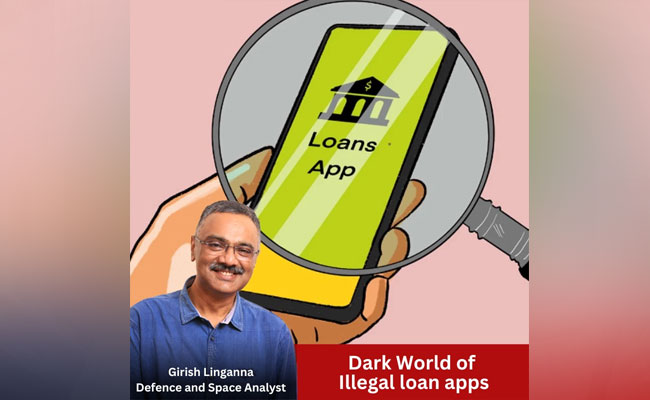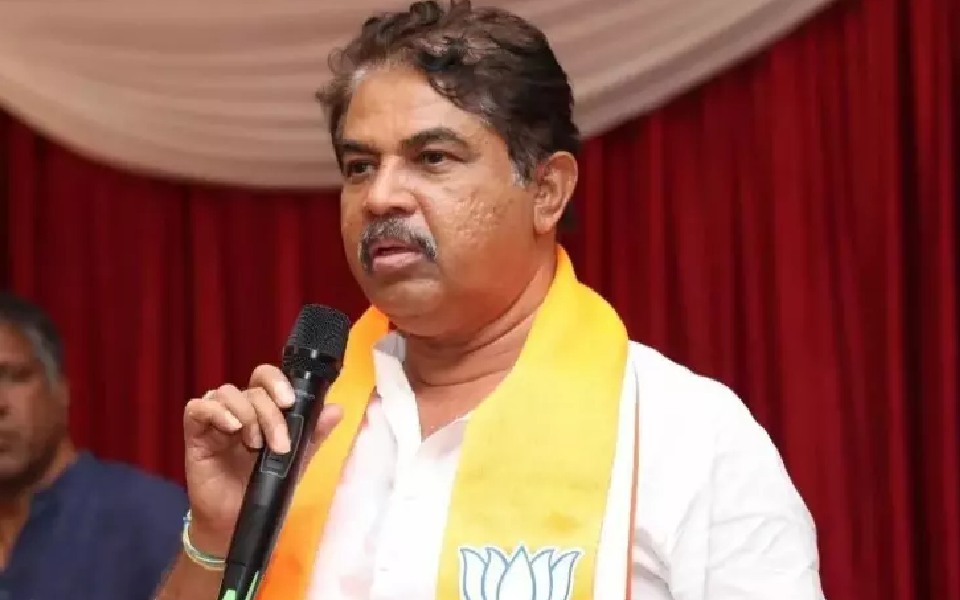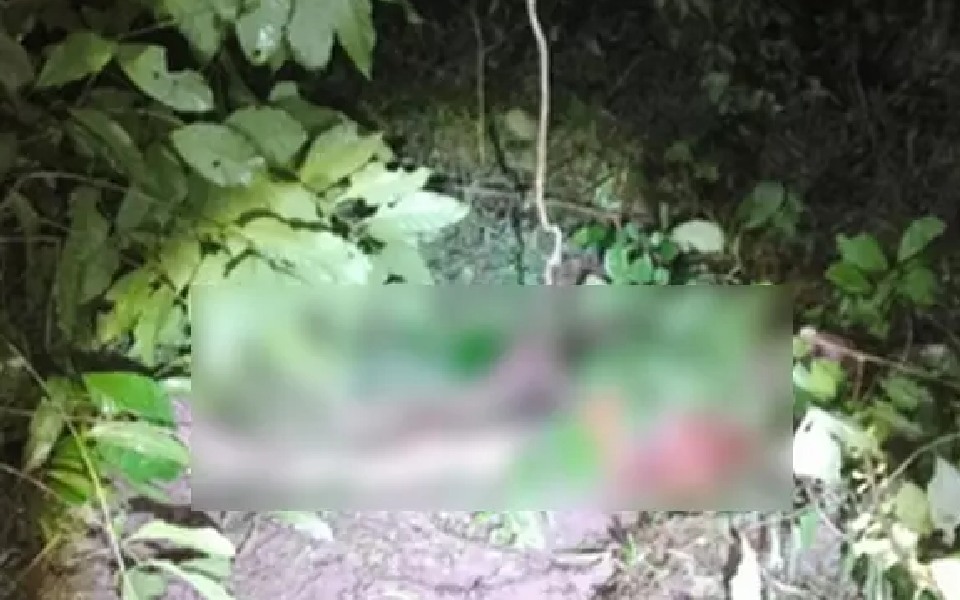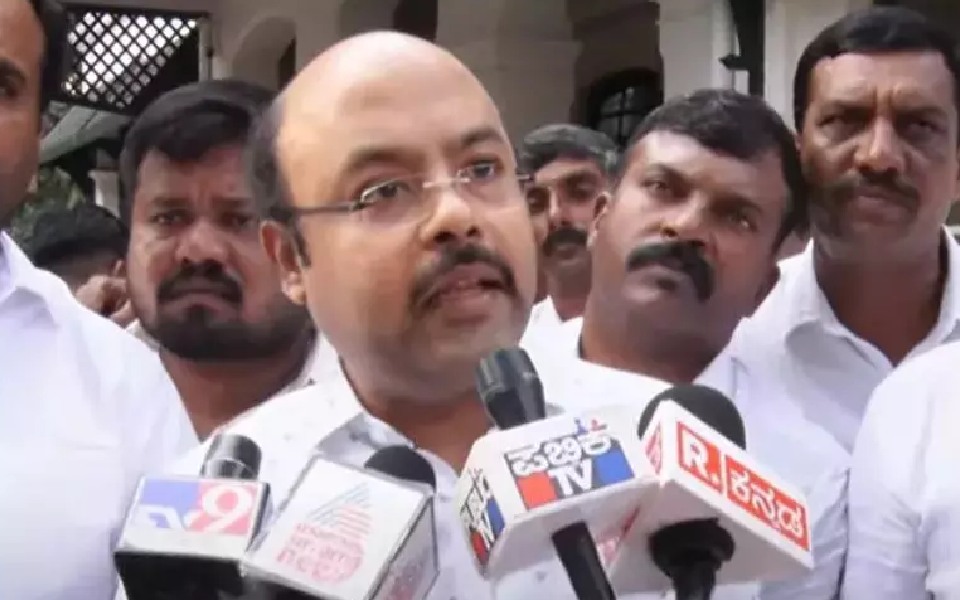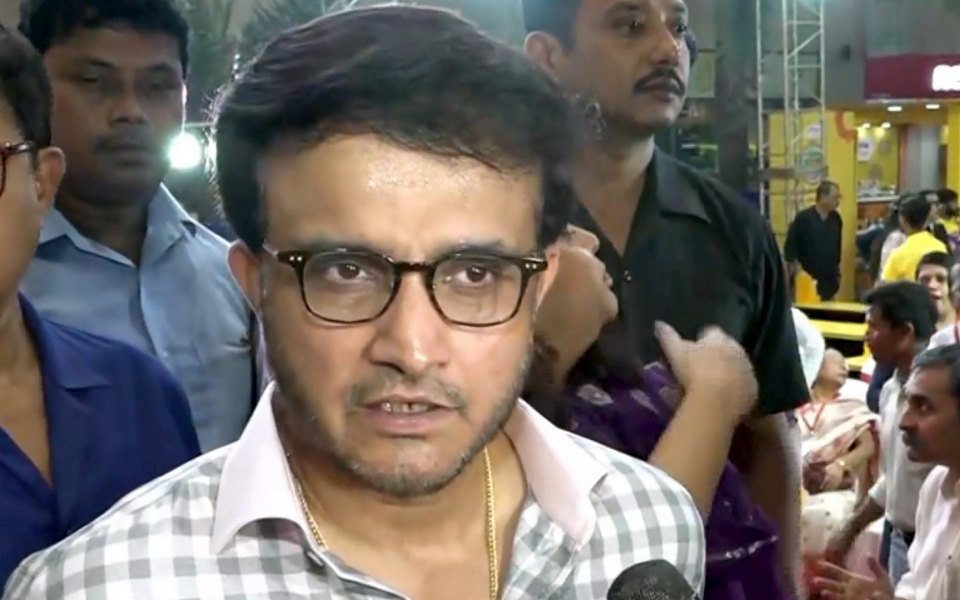On August 12, a family in Bhopal, central India, snapped a photo together at home. Following the picture, Bhupendra Vishwakarma, the father, provided his two sons, aged eight and three, with a poisonous drink. Tragically, he and his wife then ended their lives by hanging themselves.
Vishwakarma, a 35-year-old working in an insurance company, mentioned in a four-page suicide note that he was stuck in a debt cycle caused by loan apps. He had been dealing with persistent harassment from recovery agents for months, and the final message pushed him to a breaking point.
The message warned, "Instruct him to settle the loan, or else I'll expose him publicly by sharing a naked photo on social media today."
In his note before taking his own life, Vishwakarma expressed, "Now, I'm on the verge of losing my job. I can't envision a future for my family and me. I feel too ashamed to show my face to anyone. How can I face my family?"
Five individuals linked to the scam have been apprehended by the police, and the investigation is ongoing says Al Jazeera.
Vishwakarma's experience is sadly not uncommon. Shivani Rawat, a 23-year-old receptionist in Delhi, went through a similar hardship. In June 2023, she sought a 4,000 rupee loan using the "Kreditbe" app because her salary was delayed.Even though her loan application was still pending, Shivani Rawat didn't receive any funds. Strangely, within a week, she started getting 10-15 calls pressuring her to repay 9,000 rupees.
Rawat explained that she informed the recovery agents about not receiving any money in her account, but they responded with abusive language. When she stopped picking up their calls, they started sending her offensive text messages.
In August, her coworkers recieved manipulated inappropriate photos of her and her family, sent by Kreditbe representatives. She tried to clarify things with her colleagues, but the following day, her manager requested her resignation, stating her presence made others uneasy.
"After losing my job, I felt so overwhelmed with sadness that I even contemplated ending my life," Rawat acknowledged.
Media house attempted to contact Kreditbe for a statement, but there was no information accessible about the company, and none of the representatives who had been in contact with Rawat were reachable anymore.
The name "Kreditbe" is a copycat version of a genuine loan app called KreditBee. This is a common tactic used by illicit loan apps, where they often pick names resembling well-known brands to give a false sense of legitimacy.
Vishwakarma and Rawat both took loans from mobile lending apps, which provide quick and easy loans without the extensive paperwork needed for a traditional bank loan. These apps swiftly deposit the money into the borrower's account, unlike the five to seven days required by banks for those who meet stringent eligibility criteria.
The usage of these apps increased during the pandemic because, with numerous businesses closed or operating at reduced capacity, a large number of individuals found themselves jobless and facing financial challenges.
Typical loan amounts on these apps vary from 10,000 rupees to 25,000 rupees ($120 to $300), featuring monthly interest rates between 20 percent and 30 percent, along with a processing fee that could go up to 15 percent.
Usually, loan app representatives initiate the recovery process 15 days after loan approval. However, there have been instances where they've started bothering individuals just four to six days after loan disbursement. In Tiwari's situation, this happened even before she actually got the loan.
According to Akshay Bajpai, a cybersecurity expert in Bhopal, there are currently over 700 loan apps functioning in the country. While some are Indian-owned, the majority are owned by Chinese entities and employ Indians to manage their operations.
Some of these apps engage in outright deception, luring desperate loan seekers with promises of quick money, collecting fees, and then disappearing. Others operate in a grey area, not only employing malicious tactics to extort money but also by disregarding central bank regulations on online lending, including rules on annual interest rates and various charges.
The Reserve Bank of India (RBI) has explicitly stated that lending institutions are not allowed to retain customer information, except for basic details like the customer's name, address, and contact information. Nevertheless, illicit apps breach privacy by accessing contact lists and images. They manipulate these images and use them to blackmail borrowers in order to recover money.
In a study by CloudSek, a cybersecurity software company, their experts tracked 55 deceptive loan apps targeting individuals from July 22, 2023, to September 18, 2023. Furthermore, they detected over 15 less-known payment gateways managed by individuals of Chinese origin, who took these measures to avoid being detected.
Chinese loan apps use the same strategy in Southeast Asia and certain African countries as well. In places where people have less awareness about cybersecurity and fraud, they become vulnerable targets for such harmful activities.
Scammers create fear in their victims by using different tactics. Initially, they might threaten to access the victim's contact list and make calls. If the victim refuses, they may invade the victim's photo gallery, alter images, and send them back," clarified Pravin Kalaiselvan to Al Jazeera, the founder of SaveThem India, an NGO raising awareness about cybercrime.
"This causes panic among the victims, ultimately making them give in to the scammers' requests for money," he added.
Over the past three years, the Loan Consumer Association (LCA), a collective of advocates and social workers dedicated to addressing unethical recovery practices by banks and apps, has assisted nearly 1,800 individuals caught in these illicit loan app schemes. They provided counseling and supported them in filing complaints with the police.
Nikkhil Jethwa, a cyber-safety expert and founder of LCA, mentioned that almost 90 percent of these individuals were grappling with clinical depression and distress. Recalling the situation, he noted that some would experience panic or start shivering when their phones rang.
Reports regarding digital lending have increased since Prime Minister Narendra Modi imposed a nationwide lockdown in March 2020 during the initial phase of the COVID-19 pandemic, as per information from the SaveThem India Foundation.
In that year, the foundation got around 29,000 complaints filled with frightening tales of intimidating calls and messages from loan app representatives. This figure increased to about 76,000 in 2021. In the first nine months of this year, they've received 46,359 complaints.
In a survey conducted by LocalCircle from July 2020 to June 2022, 14 percent of Indians surveyed used instant loan apps in the last two years. Fifty-eight percent faced high-interest rates of 25 percent, and 54 percent of respondents reported incidents of extortion or data misuse during the collection process.
In his suicide note, Vishwakarma mentioned that he went to the Cyber Crime Office in Bhopal but did not receive any help from the officers.In Karnataka as well, the response is similar to that in Bhopal.
A senior police official from Madhya Pradesh, requesting anonymity as he lacks authorization to speak to the media, revealed that the police simply lacked the training to handle cybercrime. The situation is the same in Karnataka and other states across India.
A lot of officers in cyber-police stations lack fundamental internet knowledge, whereas cybercriminals are well-versed in the latest technology. This is the reason why many cybercrimes remain unsolved," he explained.
Scammers also utilize Interactive Voice Response (IVR), a tool provided by companies without rigorous documentation. This is aimed at individuals who are not active on online platforms like Facebook, where loan apps typically promote their services, explained Kalaiselvan.
Most of these scammers employ virtual numbers from nearby countries such as Bangladesh, Pakistan, and Nepal, making it difficult to trace their whereabouts.
"Loan scammers exploit these services, creating difficulties for authorities in apprehending them," mentioned Kalaiselvan.
Experts state that these apps usually have names containing keywords such as "easy," "loan," "Aadhar," and "emi," making them easily identifiable through online searches. (Aadhar is the unique 12-digit ID required by people in India for banking services.)
Moreover, they advertise their services on platforms like Facebook and on Google through AdSense, enabling website owners to show targeted ads and grow their user base. When these apps encounter bans or complaints, they frequently change their names and other details, reappearing with a new identity.
According to Jethwa, scammers from loan apps extract money through bank accounts, but even with access to those records, very few of them are caught.
A key factor is that a small percentage of Indians are digitally adept. As per Oxfam's India Inequality Report 2022, only 38 percent of households in the country have digital literacy.
"The government advocates for Digital India, but we lack the necessary infrastructure and cyber-literacy programs for the people," expressed Jethwa.
In March, the Directorate of Enforcement (ED) confiscated movable assets valued at 1.06 billion rupees ($12.76 million) in Bengaluru related to financial frauds linked to Chinese loan apps.
According to the ED, these companies rapidly provided short-term loans to the public through loan apps and other channels, charging high processing fees and extremely elevated interest rates. They retrieved money from borrowers using forceful methods, including constant phone threats and causing emotional distress.
Google India reported that it took down over 3,500 personal loan apps from its Play Store in 2022 because they didn't adhere to its policies and regulations. These apps were illicitly accessing user data, including contacts and photos.
In September 2022, India's Finance Minister Nirmala Sitharaman mentioned that the RBI would compile a roster of legitimate apps, and the Ministry of Electronics and Information Technology (MeitY) would guarantee that only these authorized apps were accessible on Google Play Store and Apple App Store.
On February 7, 2023, in reply to a question in Parliament, the Finance Ministry stated that it had submitted a whitelist of authorized digital lending apps to app stores like Google Play Store and Apple App Store. However, local media refuted this statement, reporting that no such list had been sent.
At approximately the same time, Shaktikanta Das, the governor of the central bank, stated that digital lending apps do not fall under the regulatory jurisdiction of the central bank.
In that month, the government prohibited 94 lending apps, including those with names like BuddyLoan, CashTM, Indiabulls Home Loans, PayMe, Faircent, and RupeeRedee. The RBI had raised concerns about these apps for different reasons, and several of them either had Chinese investors or were implicated in harassing borrowers.
(The author of this article is a Defence, Aerospace & Political Analyst based in Bengaluru. He is also Director of ADD Engineering Components, India, Pvt. Ltd, a subsidiary of ADD Engineering GmbH, Germany. You can reach out to him at: girishlinganna@gmail.com)
Let the Truth be known. If you read VB and like VB, please be a VB Supporter and Help us deliver the Truth to one and all.
Bengaluru: Leader of the Opposition R. Ashoka launched a scathing attack on MLC Dr. Yathindra, demanding that he retract his controversial statement comparing Chief Minister Siddaramaiah to the late Maharaja Nalwadi Krishnaraja Wadiyar. Ashoka urged Yathindra to apologize to the people of Karnataka if he had even a shred of conscience and any respect for the Mysuru royal lineage.
In a strongly worded social media post on Sunday, Ashoka stated, “Comparing Siddaramaiah to Nalwadi Krishnaraja Wadiyar is nothing short of absurd. Where is Nalwadi, who was bestowed the title of ‘Rajarshi’ by Mahatma Gandhi himself, and where is Siddaramaiah, who has stooped to being a puppet in the hands of fake Gandhis for the sake of power?”
He continued his critique by contrasting the enduring legacy of Nalwadi, remembered fondly by Kannadigas for his people-centric development, with what he termed as Siddaramaiah’s failure to manage Karnataka’s economy, burdening every household with debt.
Ashoka highlighted several stark differences, while Nalwadi built Mysore University over a century ago, Siddaramaiah is shutting down nine universities due to lack of funds. Nalwadi famously sold his family’s gold to build the KRS dam, whereas Siddaramaiah is accused of grabbing 14 sites meant for the public. Nalwadi established Bhadravati Iron & Steel Plant, Sandalwood Soap Factory, and Mysore Paper Mills. In contrast, Ashoka claimed Siddaramaiah's governance drove away industries, investors, and entrepreneurs. Nalwadi pioneered reservations for the backward classes long before it became mainstream. Siddaramaiah, Ashoka alleged, is reducing social justice to a gimmick by sticking labels on doors in the name of surveys.
While acknowledging Yathindra’s emotional attachment to his father, Ashoka emphasized that comparing Siddaramaiah to a visionary like Nalwadi was “laughable, baseless, and a gross insult” to the late king.
In his concluding remarks, Ashoka slammed the government for ignoring farmers’ needs despite an early monsoon. He accused the administration of being caught up in internal power struggles and negligence, forcing farmers into despair. “This government will not be spared from the curse of the farmers,” he warned.

